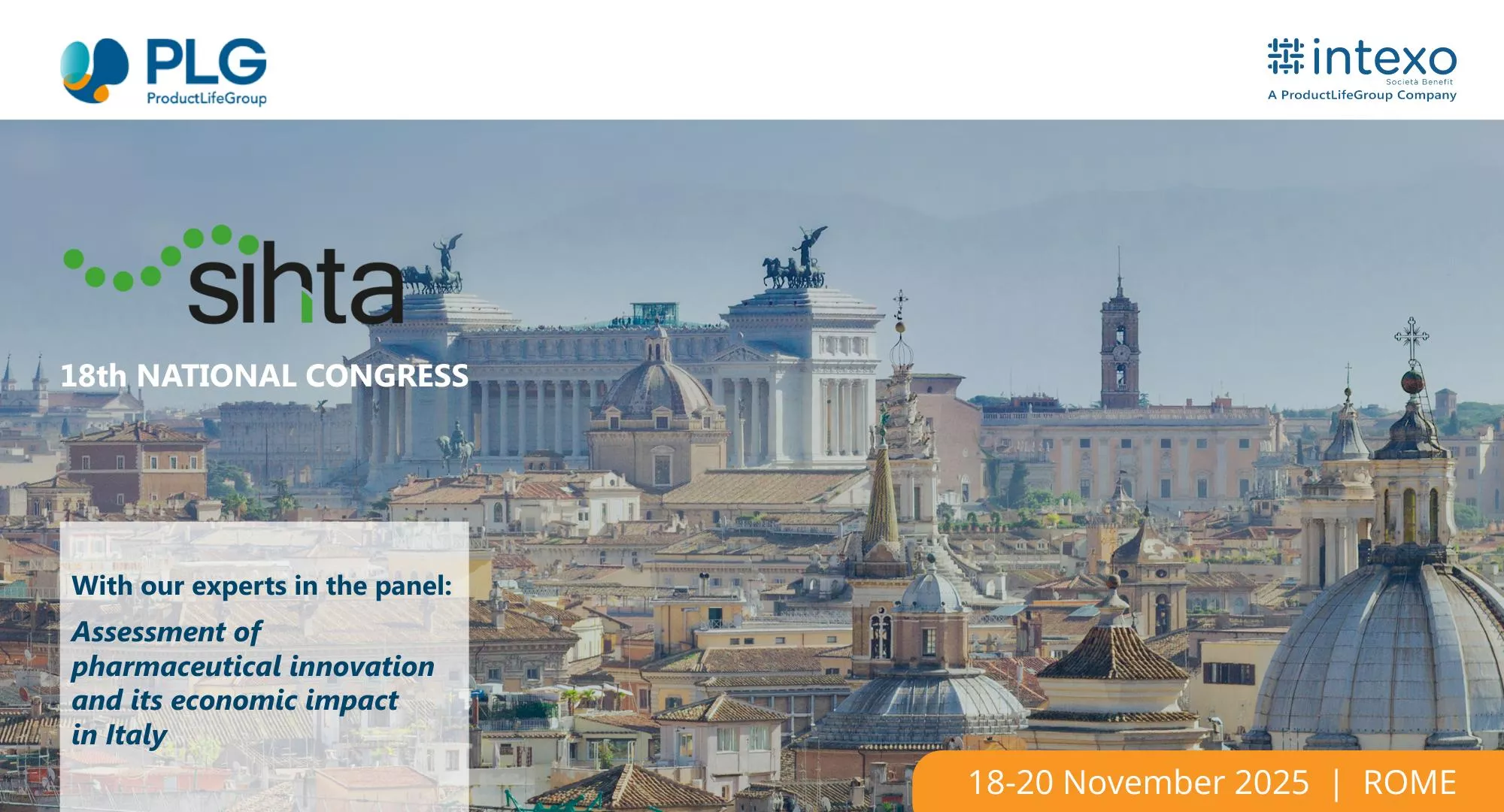
Evaluating Innovation and HTA in Italy: Key Insights from the 18th SIHTA National Congress

At the 18th SIHTA National Congress in Rome, ProductLife Group – represented by our affiliate Intexo Società Benefit (A ProductLife Group Company) – contributed to the national discussion on how innovation, governance and Health Technology Assessment (HTA) are reshaping access to pharmaceutical and medical technologies in Italy.
Our experts Elisa Elena Mariano and Francesca Saviano presented evidence on the evolution of innovation classification and pharmaceutical expenditure in light of AIFA Determination No. 966/2025, while a broader debate across the Congress highlighted a clear shift: the integration of HTA within European and national regulatory strategies is becoming central for sustainable access and market attractiveness.
Day 1 – HTA, Digital Transformation and the Future of Healthcare Data
1) Joint Clinical Assessment (JCA): A New European Paradigm
The implementation of the EU HTA Regulation is redefining how clinical value is assessed. Italy’s role will be shaped by the ability of AIFA to enable early dialogue with companies, supporting the identification of relevant evidence and strengthening Italy’s influence in Europe. Collaboration between stakeholders emerges as a key condition to reinforce leadership.
2) Digital Technologies and AI: Building the “SSN 2.0”
Digitalisation is set to transform the Italian healthcare system, with Agenas acting as the national digital health agency and key executor of PNRR initiatives. AI will support diagnosis, care delivery, prevention and clinical decision-making — especially in primary care.
The upcoming EU regulation on health data use will not only empower European citizens but also accelerate cross-country research, patient management and data-driven care models.
3) Medical Devices: A Strategic Asset for European Competitiveness
For the medical device sector to remain competitive, investments in Italy and at EU level must be strengthened, ensuring alignment between regulatory innovation, industrial strategy and health governance.
Day 2 – Medical Device Governance, Evidence Generation and HTA Integration
1) A New Governance Framework for Medical Devices
The combined effects of the PNHTA cycle completion, the implementation of the HTAR and the evaluation of the MDR require a stronger and more structured governance system.
A modern approach must:
- define innovation through clinical, organizational and economic contributions;
- foster robust, continuous evidence generation;
- formalize valuation processes and align national and regional systems;
- ensure market attractiveness through clear, predictable rules for developers.
2) HTA as a Policy Driver
The latest Budget Law confirms that HTA increasingly influences political and resource allocation decisions.
The reform of AIFA strengthens alignment with the Ministry of Health and with the European HTA framework.
3) JCA Outlook: Transition in 2025, Expansion in 2026
2025 will see limited JCA volume, but 2026 will bring significant acceleration. JCA will harmonize comparator selection and better align clinical development with post-EMA processes.
At national level, AIFA will continue to manage HTA through price and reimbursement, with PICO criteria already embedded in evaluation methods (CSE).
What This Means for Stakeholders
- Regulators must ensure coordinated governance and evidence-based policy.
- Developers need early dialogue, clearer criteria and continuous data generation.
- Healthcare systems must adopt HTA as a structural tool to promote equity, sustainability and timely access.
- Europe’s competitiveness depends on a coherent approach across regulation, innovation and industrial policy.
About Intexo – A ProductLife Group Company
Intexo Società Benefit combines deep knowledge of Italian market access regulation with strong HTA expertise to support the evaluation of innovative therapies and technologies, ensuring sustainable access and evidence-driven decision-making.
Register to our news and events
Go to our Events to register
Go to our News to get insights
